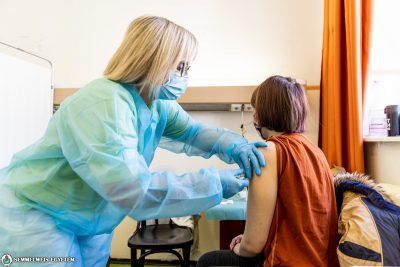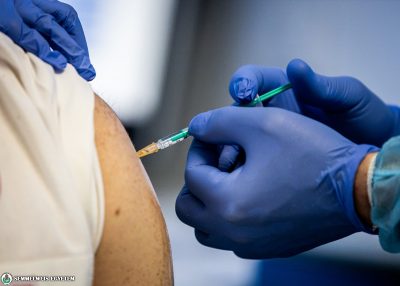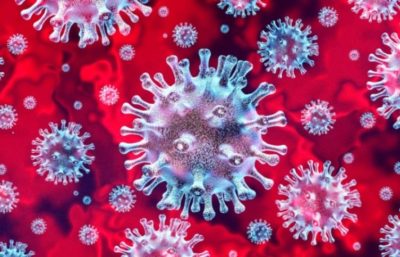Remdesivir has been proven efficient in the treatment of coronavirus patients. Those who were given the drug recovered more quickly, could leave the hospital sooner and mortality rate was lower than in the control group who received placebo. These results were published in The New England Journal of Medicine, the world’s No.1 medical journal, which were summarized by Dr. Béla Merkely, Rector.
A number of therapeutic products have been tested for the treatment of SARS-CoV-2, but no antiviral agent has been proven effective. Since the publication of preliminary reports, dexamethasone has been shown to reduce mortality among ventilated patients.
Remdesivir is an RNA polymerase inhibitor dependent on propagating material, which showed in vitro inhibitory activity against SARS-CoV-2 and MERS-CoV viruses, thus it was considered a promising drug in the treatment of COVID-19. To demonstrate this, a Phase III double-blind, randomized, placebo-controlled trial was conducted and the results were published in a recent article in The New England Journal of Medicine.
The patients enrolled in the study conducted at several sites (USA, Denmark, UK, Greece, Germany, South-Korea, Mexico, Japan, Spain, Singapore) were randomly assigned to receive either remdesivir or placebo for up to 10 days. The patients treated with remdesivir received a 200 mg loading dose on day 1, followed by 100 mg daily for up to 9 additional days. The placebo group received intravenous saline solution as placebo on the same days at the same time for 10 days. The patients were examined for 29 days during their hospital stay according to primary and secondary outcomes. In addition, the occurrence of severe adverse events and complications was studied in the investigated population.
A total of 1062 patients underwent randomization with 541 assigned to remdesivir and 521 to placebo. 64.4 percent of the patients were male with a mean age of 58.9 years. Those who received remdesivir had a median recovery time of 10 days, as compared with 15 days among those who received placebo. The mortality study at day 15 showed a mortality rate of 6.7 percent (35 persons) in the remdesivir group compared to 11.9 percent (61 persons) in the placebo group. On day 29, mortality increased to 11.4 percent in the remdesivir group compared to 15.2 percent in the placebo group. Remdesivir has been shown to be the most effective in the early stages of the disease. At the start of the study 913 patients needed oxygen therapy and those who received remdesivir needed to be administered oxygen for a shorter time compared to the placebo group.
Overall, data show that remdesivir was more effective than placebo. Patients treated with remdesivir recovered in a shorter time, could leave the hospital earlier and required clinical care for a shorter time. The mortality projected to all the patients treated with remdesivir was 11.4 percent compared to 15.2 percent in the placebo group.
“The data suggest that remdesivir may prevent disease progression and there are fewer complications of the respiratory tract when used compared to placebo treatment.”, Dr. Béla Merkely pointed out.
Remdesivir has been fully or partially approved in several countries in the treatment of COVID-19, but patient mortality is high despite its use. Therefore, this antiviral agent in itself is unlikely to be sufficient in case of all patients.
“The use of remdesivir seems to be the most effective if used as part of a combination therapy of convalescent plasma, steroids and blood thinners, occasionally supplemented with non-invasive ventilation and physiotherapy.”, said Dr. Béla Merkely.
The summary of Dr. Béla Merkely, Rector on „Remdesivir for the Treatment of Covid-19 – Final Report” authored by John H. Beigel, M.D., Kay M. Tomasherk, M.D., Robert W. Finberg, M.D. and published in the New England Journal of Medicine.
Our article on the clinical application of remdesivir is available here
Photo: Attila Kovács – Semmelweis University
Translation: Ágnes Raubinek


